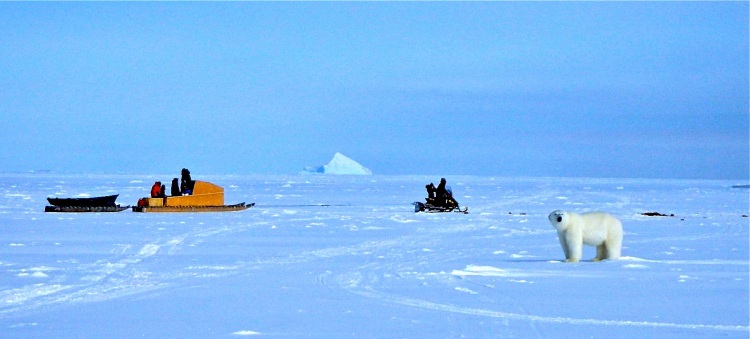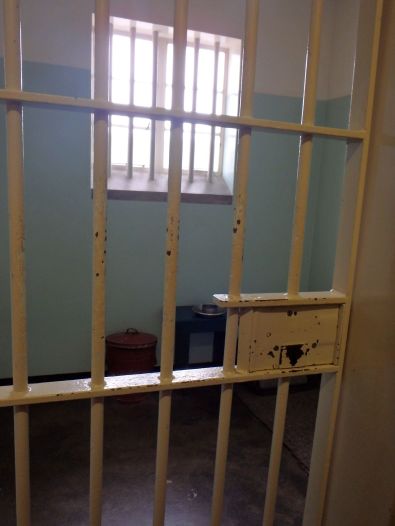
As a part-time fitness instructor, it’s my job to motivate participants to become stronger. Don’t give up. Keep going, stay strong. I cheer them on with cheezy one-liners and upbeat music, and I try to inspire them to challenge themselves physically by lifting heavy weights and pushing my body to the limit.
Physical strength has always been important to me. It’s enabled me to take on physical challenges, like a 24-day backpacking expedition in the Alaskan wilderness and cycling in Italy and Spain which have taught me discipline, resilience, and the power of positivity.
But lately, especially as I’m trying to figure out how to balance pursuing my passions and paying the bills, I’ve been wondering what I really mean when I’m encouraging people (and myself!) to be strong?
In North America, we tend to glorify independence, invincibility, fearlessness, and perfectionism. So in the past, I believed that “strong” people were fiercely independent, and void of vulnerability or imperfection. This definition of strength guided the way I lived, worked, and loved.
I rarely asked for help. I didn’t take care of myself enough. I prioritized my independence and career over some of the the relationships I valued most. I strived for perfectionism, and was overly hard on myself and the people I loved when I/they didn’t meet my unrealistically high expectations. When I played rugby, I taped up a sprained ankle to play in a championship game while my teammate played with a hairline fracture in her elbow, even though these choices put our bodies at risk for long-term chronic injuries.
Through some recent experiences teaching, writing & traveling, I’ve learned that being strong means something quite different than I had originally believed it to be. Here’s what “being strong” involves for me now.
Vulnerability
The work of Dr. Brené Brown has also really challenged my perception of strength. As a self-professed “recovering perfectionist,” Brown’s research reveals that instead of being a sign of strength, that perfectionism is rooted in fear. Fear of not being enough. Fear of unworthiness. Fear of disconnection.
Her books, particularly Daring Greatly, have made me realize that vulnerability is not weakness. Rather, strength lies in embracing our vulnerabilities and having the courage to be imperfect. If you aren’t familiar with her work, I encourage you to check out this TED Talk.
Learning to embrace vulnerability has helped me to gain a better sense of self-worth and self-acceptance. It has made me a better teacher because when I allow myself to take risks and make mistakes, it gives my students permission to do the same, providing them with greater learning opportunities both in and out of the classroom.
In addition, it’s allowed me to develop deeper, more meaningful relationships. When I’m able to find the courage to speak and act from the heart, my friends and family members are more likely to engage in the relationship honestly themselves.
Humility
After living and working as a teacher in the Arctic, where society is centred around the community and not the individual, I learned that being strong doesn’t necessarily mean being able to do everything on your own. Instead, it’s having the humility to accept our limitations as individuals and ask for help and/or support from others when needed.
In the Arctic, the communities are small and isolated (in Pond Inlet, where I lived, there were only 1500 people) and resources are scarce, so people depend on each other for survival. Instead of admiring my independence, many of the local people felt like it was really sad that I would want to live so far away from my family. I couldn’t do many of the things, like running and cross-country skiing on my own because of safety concerns with extreme cold and polar bears, so I had to ask people to help me do these things. I depended on co-workers to help me understand the local culture and way of life and build relationships so that I could be accepted by community members.

Even though it’s still really hard for me to ask for help, I no longer see it as weakness. Living in the north taught me that relationships can make us stronger and that we gain strength through connection.
Faith
In addition to accepting help and embracing vulnerability, for me, strength also involves faith: faith in myself, faith in others, faith in the universe. It’s about trusting my intuition, letting go of the need to control everything all of the time, or having all of the answers right away. Connected to faith is resilience: getting back up when I’ve been knocked down, despite the obstacles that get in the way.
While writing my first novel, I struggled daily with self-doubt. Who am I to think I can write a novel? Will I even finish it? Will my book ever get published? Will anyone read it? Is it terrible?
There were days when the doubt was so crippling that I couldn’t even type a word. I’d go for a walk, clear my head, meet a friend, go get groceries, work at the gym, do ANYTHING else to avoid writing…because if I AVOIDED writing and never actually wrote the book, then I would never have to confront the fact that it might not get published, might be terrible, might humiliate me. But then the desire to write the book would eventually outweigh the doubt and I’d give myself a little pep-talk and continue writing.
I finished writing the book. It isn’t published…not yet anyways. But through the process, I learned how much I love the act of writing itself. Regardless of whether or not this particular book gets published, I have faith that one day, I will write a book that will.
Forgiveness

In August 2015, I traveled to South Africa for my friends’ wedding and did a day trip to Robben Island, where Nelson Mandela was a prisoner for 18 of his 27 years in prison.
The experience was incredibly powerful, as tours were led by a former inmate who spoke about his time in prison and the oppressive system of apartheid that he had been fighting against. The guide spoke a lot about forgiveness and reconciliation, and how he had chosen to forgive his oppressors for the harm they had caused him and his country.
After apartheid was abolished in 1994, the Truth and Reconciliation Commission was established as a method of restorative justice where both victims and perpetrators of violence could give statements about their experience, and perpetrators could request amnesty from both civil and criminal prosecution. The guide emphasized how the path of forgiveness as opposed to punishment or revenge, was necessary for his country to heal and move forward.
At the time, I was grappling with how to forgive a friend who I felt betrayed by. This small personal conflict was so insignificant compared to what the prisoners at Robben Island had suffered, so I felt inspired to take the path of forgiveness in my personal life. Yet it wasn’t easy at all and I couldn’t even begin to imagine the strength it took South Africans to choose to forgive on the political scale.
I went back and forth about whether forgiveness was strength or weakness. Was I letting my friend off the hook by forgiving? Did forgiveness mean I would be risking more pain in the future? How would I benefit from forgiving?
After reading Desmond Tutu and Mpho Tutu’s, The Book of Forgiving (a life-changing read), I realized that true healing requires forgiveness. It takes a lot of strength to let go of the desire for revenge and retribution, but forgiving provides an opportunity for growth for all parties involved.
*
Now when I say, “stay strong” in my fitness classes, I’m trying to send a message (at least as a reminder to myself!) that strength is grounded in self-care, love and compassion. This means being okay with taking “off days” and allowing injuries time to heal. It means I’m not obsessing about numbers on the scale or my body fat percentage, but rather am learning to be vulnerable and accept my body’s imperfections.
Being strong doesn’t mean being invincible and independent and macho and fearless and perfect. It’s about looking inside ourselves and opening ourselves up so that we can grow, follow our hearts, connect with each other, and heal.
Inspiring article Shannon! Your traveling has certainly provided you with life changing positive insights.
LikeLiked by 1 person
Thanks Pat! I appreciate that you are taking the time to read & comment on my blog. Yes, travel definitely taught lots of lessons….some hard ones for sure!
LikeLike
Powerful post Shannon; much of it resonates with me personally. I’ll need to create a new reading list, thanks for the suggestions.
LikeLiked by 1 person
Thanks Nuala! I’m glad that you felt you could connect to the article. Brené Brown’s books, in particular Daring Greatly and The Gifts of Imperfection have really helped me change my life for the better! The Book of Forgiving is really powerful as well. Thanks for reading.
LikeLike
Shannon, were you ever a physical instructor at a CA spa? Are you Canadian? Would love to make contact with you!
We have a stretching tape of yours that we have been using for two decades. We love it and think it is the best. Now we need to update to a CD. How do we purchase one?
Bless you for keeping us healthy and moving in our 80’s!
LikeLike
Hi I never worked at CA Spa…the only spa I worked at was Fairmont Banff Springs…
LikeLike